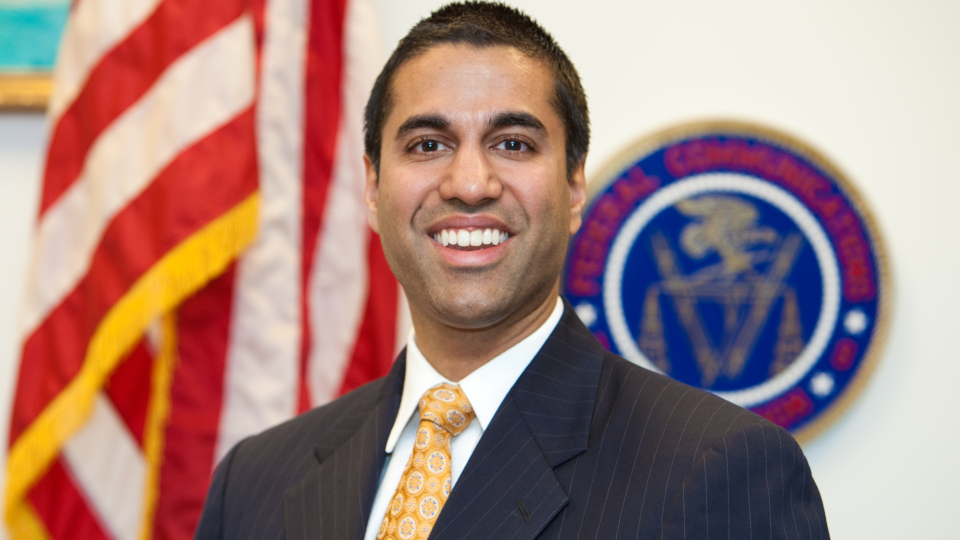The professional video industry's #1 source for news, trends and product and tech information. Sign up below.
You are now subscribed
Your newsletter sign-up was successful
WASHINGTON—The FCC has officially launched its 2018 Quadrennial Review of the its media ownership rules to determine whether they “are necessary in the public interest as the result of competition” and to “repeal or modify any regulation [the Commission] determines to be no longer in the public interest.”
The rules subject to this quadrennial review obligation include the Local Radio Ownership Rule, the Local Television Ownership Rule, and the Dual Network Rule. The Local Radio and Local Television Ownership Rules limit the total number of broadcast radio and television stations, respectively, that may be commonly owned in a media market. The Dual Network Rule prohibits a merger between or among the Big Four broadcast networks (ABC, CBS, Fox, and NBC).
In its Notice of Proposed Rulemaking, the commission said it was seeking comment on whether the three rules continue to serve the public interest or whether they should be modified or eliminated in light of changes to the media marketplace. In addition, the notice seeks comment on three proposals relevant to promoting diversity in the broadcast industry. The statute specifically excludes the national television ownership cap from the quadrennial review.
[Read: FCC To Kick Off Quadrennial Broadcast Reg Review Next Month]
The national ownership rules pertaining to the 39% cap on national audience reach or the UHF discount from that cap, are not part of the inquiry because they are not part of the rules that Congress requires the commission to review.

In a statement, Chairman Ajit Pai said “our rules must keep pace with the modern media marketplace,” noting that, for example, the commission’s elimination of the newspaper-radio cross-ownership rule in 2017 has helped media enterprises such as Colorado’s “Grand Daily Junction Sentinel” expand its reach by allowing it to acquire a radio station group in Grand Junction.
“I recently met Jay Seaton, who runs the ‘Daily Sentinel,” Pai said. “He told me that this transaction will help him disseminate news across more formats and appeal more to advertisers [revenue from which can be poured back into the busines]). As he put it, ending the cross-ownership ban was ‘15 years overdue.’””
The professional video industry's #1 source for news, trends and product and tech information. Sign up below.
Four of the five commissioners concurred with the launch of the review with Democratic commissioner Jessica Rosenworcel dissenting, saying the review is inadequate.
Emphasizing the importance of localism, competition and diversity in the broadcast ownership marketplace, Rosenworcel said much of the review “hits the mark” but misses it in other aspects.
“To the extent this rulemaking offers thoughtful reform, I approve,” she said. “But in other aspects, I dissent. It fails to honestly assess the impact of too many changes we propose on the values of localism, competition, and diversity that have informed this agency’s media policies in the past—and I believe should still inform our efforts in the future.“
Pai responded that he was “disappointed” with Rosenworcel’s dissent but that Congressional rules require the commission to include the Dual Network Rule.
“Whatever one’s opinion of it, refusing to include [the Dual Network Rule] in our quadrennial review would have violated the law,” Pai said. “As a result, a request to remove it from the Notice doesn’t constitute a good-faith attempt to reach consensus but rather gives the appearance of looking for an excuse to dissent for political reasons.”
NAB said the review is timely in light of the increasing crowded media marketplace.
"NAB looks forward to participating in the FCC’s congressionally-mandated quadrennial review of broadcast media ownership rules,” the association said in a statement. “We are not seeking wholesale elimination of these regulations, but rather a modernization that reflects today’s fiercely competitive marketplace. We trust the Commission will update these rules with an understanding that free and local broadcasting now competes head-to-head with powerful Internet, pay TV and audio companies that didn't exist when many broadcast ownership rules were first written."
Tom has covered the broadcast technology market for the past 25 years, including three years handling member communications for the National Association of Broadcasters followed by a year as editor of Video Technology News and DTV Business executive newsletters for Phillips Publishing. In 1999 he launched digitalbroadcasting.com for internet B2B portal Verticalnet. He is also a charter member of the CTA's Academy of Digital TV Pioneers. Since 2001, he has been editor-in-chief of TV Tech (www.tvtech.com), the leading source of news and information on broadcast and related media technology and is a frequent contributor and moderator to the brand’s Tech Leadership events.

